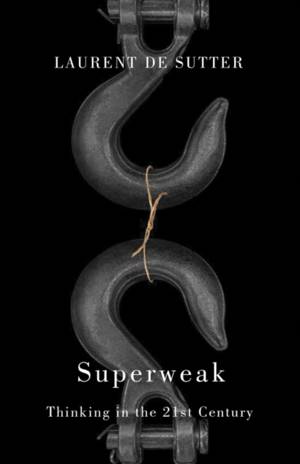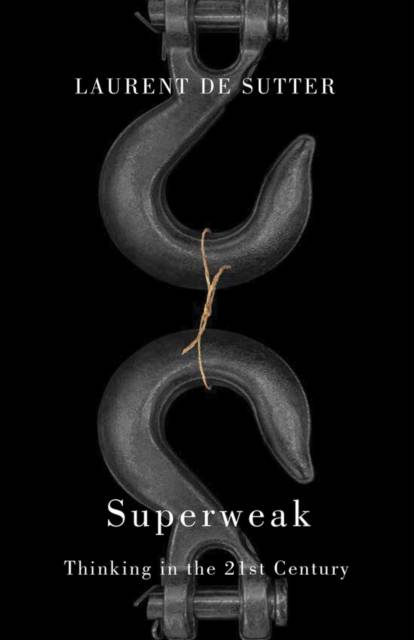
- Retrait gratuit dans votre magasin Club
- 7.000.000 titres dans notre catalogue
- Payer en toute sécurité
- Toujours un magasin près de chez vous
- Retrait gratuit dans votre magasin Club
- 7.000.0000 titres dans notre catalogue
- Payer en toute sécurité
- Toujours un magasin près de chez vous
94,95 €
+ 189 points
Format
Description
We have become superheroes. Nothing can resist us anymore: not persons, ideas, facts, realities, or beings. We owe our superhuman strength to a tool we have taken up that submits everything to the scrutiny of our judgment: critique. After its first formulation at the end of the sixteenth century, the project of critique spread from one sphere to another until it became almost universal: we have all of us been transformed by our equal capacity to judge, approve, and reject. If modernity is defined as the journey we have taken to move away from the myths and dogmas of the past, then critique, with its emphasis on reason and the autonomy of judgment, has been the lynchpin of modernity. Today, however, the critical project shows signs of exhaustion. We are beginning to realize that being right is useless, now that everyone can lay claim to the same power as we can. The democratization of reason, proceeding alongside the development of critique through modernity, has produced a stalemate: for every judgment that we pronounce, there is another opposing one - with grounds as solid as our own, and the same right to assert itself. Rather than elevating us above the world, critique has mired us in an impasse of claim and counter-claim. The age of critique is now over, argues Laurent de Sutter, and in its place we need to develop a postcritical form of thinking, one he calls "superweak," a form of thinking based not on establishing grounds, pronouncing judgment, and determining duty, but on welcoming possibility, exploring what the world has to offer, and cultivating a vertiginous appreciation for moving within a world less grounded and less bounded by the terms of critical reason. We have become superheroes. Nothing can resist us anymore: not persons, ideas, facts, realities, or beings. We owe our superhuman strength to a tool we have taken up that submits everything to the scrutiny of our judgment: critique. After its first formulation at the end of the sixteenth century, the project of critique spread from one sphere to another until it became almost universal: we have all of us been transformed by our equal capacity to judge, approve, and reject. If modernity is defined as the journey we have taken to move away from the myths and dogmas of the past, then critique, with its emphasis on reason and the autonomy of judgment, has been the lynchpin of modernity. Today, however, the critical project shows signs of exhaustion. We are beginning to realize that being right is useless, now that everyone can lay claim to the same power as we can. The democratization of reason, proceeding alongside the development of critique through modernity, has produced a stalemate: for every judgment that we pronounce, there is another opposing one - with grounds as solid as our own, and the same right to assert itself. Rather than elevating us above the world, critique has mired us in an impasse of claim and counter-claim. The age of critique is now over, argues Laurent de Sutter, and in its place we need to develop a postcritical form of thinking, one he calls "superweak," a form of thinking based not on establishing grounds, pronouncing judgment, and determining duty, but on welcoming possibility, exploring what the world has to offer, and cultivating a vertiginous appreciation for moving within a world less grounded and less bounded by the terms of critical reason.
Spécifications
Parties prenantes
- Auteur(s) :
- Traducteur(s):
- Editeur:
Contenu
- Nombre de pages :
- 230
- Langue:
- Anglais
Caractéristiques
- EAN:
- 9781509566464
- Date de parution :
- 12-01-26
- Format:
- Livre relié
- Format numérique:
- Genaaid

Les avis
Nous publions uniquement les avis qui respectent les conditions requises. Consultez nos conditions pour les avis.






